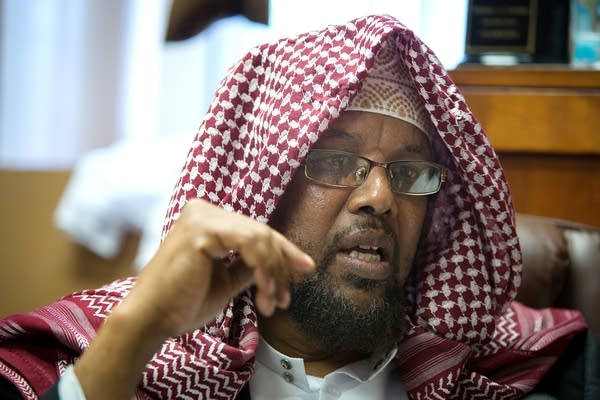Expel or engage? Mosques seek new ways to end terror recruiting

Skeikh Abdirahman Ahmad, the imam at Abubakar As-Saddique mosque, during an interview Friday, Sept. 26 in Minneapolis.
Jennifer Simonson/MPR News
Go Deeper.
Create an account or log in to save stories.
Like this?
Thanks for liking this story! We have added it to a list of your favorite stories.


